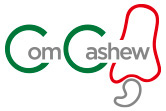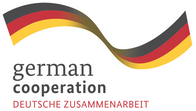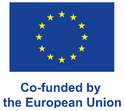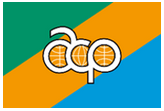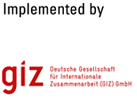Call for Submissions: Build Your AgriCanvas. Build Your Future.
Submit your innovative ideas focused on the Cashew value chain
![]()
Applications are Closed
The e-MOVE is inviting young and emerging entrepreneurs within the cashew sector to transform their ideas into investment-ready, climate-smart ventures.
Are you working in the cashew, cocoa, maize, or livestock (cattle, sheep, goats) sectors in a member state of the Organisation of African, Caribbean, and Pacific States (OACPS)?
If yes, this opportunity is for you.
Taking the Next Step in your Cashew Learning Journey with e-MOVE
Your submission should build on the knowledge and tools from our free cashew courses on e-MOVE. You have the opportunity to turn these insights into a fundable plan and submit it to us for a chance to receive real support.
Winners can receive one of these kickstart prizes:
- 2,000 EUR direct funding to boost your business
- A laptop, tablet, or software to keep you on top of operations
- Expert mentoring, training and incubation support
- Connections to financial institutions that can take you further
By supporting viable business ideas, MOVE-ComCashew works to ensure that young and emerging MSMEs in the cashew sector are better positioned to attract investment and adopt low-emission, climate-resilient practices, contributing to sustainable food systems and rural livelihoods.
Submission Timeline:
You can submit your business idea within one of three submission windows:
1st submission period: 15 September – 7 November 2025 (Applications closed)
2nd submission period: 1 February – 30 April 2026
3rd submission period: 1 June – 31 August 2026
Who can apply?
This opportunity is for emerging agripreneurs ready to invest in their idea. The full learning pathway takes about 7 hours to complete.
How to enter:
1. Register on atingi (www.atingi.org) or the e-MOVE landing page
Here you can access our free e-learning courses on the cashew sector.
2. Complete the mandatory e-MOVE courses in order:
Step 1: Complete one course: Course: Introduction to Conservation Agriculture (CA) | atingi
Step 2: Once step 1 is completed, you will unlock Creating an Investment-Ready Agribusiness - this is your final required course!
For easy access, we have created a dedicated e-MOVE Landing page on atingi, where all 2 courses are grouped in one place: e-MOVE Landing Page
Step 3: Complete your AgriCanvas
Use the Business Model Canvas template provided in the submission module of Creating an Investment-Ready Agribusiness to develop your idea on the cashew value chain. This AgriCanvas is the official format for your submission.
3. Submit your idea
To ensure your submission is valid, you must:
- Use the certificate ID from the Creating an Investment-Ready Agribusiness course as proof you’ve completed the required training.
- Fill out the official submission form here: Call for submission.
- Upload your completed Business Model Canvas using the template provided.
SUBMIT YOUR BUSINESS IDEA HERE
Frequently Asked Questions
1. Who can enter? (Eligibility)
This call for submissions is open to young and emerging agripreneurs, aged 18 and above based in a member state of the Organisation of African, Caribbean and Pacific States (OACPS).
To see if your country is an OACPS member state, check here.
Only projects submitted via the following link on Kobotoolbox are eligible.
2. Do I need to pay anything to enter?
Participation in this competition is completely free of charge. The required e-learning courses are also offered at no cost to the applicant. No entry fees, subscription charges, or hidden costs apply at any stage of the competition.
3. Who is this organised by?
This competition is organised by the Deutsche Gesellschaft für Internationale Zusammenarbeit (GIZ) GmbH through its Agri-Business Facility for Africa (ABF) and Market-Oriented Value Chains for Jobs and Growth in the ECOWAS Region (MOVE-ComCashew) projects, both part of German Development Cooperation.
Together, these projects implement the Joint Action “Business Support Facility for Resilient Agricultural Value Chains”, a combined effort of the EU Directorate-General for International Partnerships (INTPA), Organisation of African Caribbean and Pacific States (OACPS) and German Government through the Federal Ministry for Economic Cooperation and Development (BMZ).
The Joint Action is jointly co-financed by the European Union under the Samoa agreement with OACPS and by the (BMZ) and implemented by GIZ.
4. Can I submit more than one idea?
Each applicant may submit only one idea per submission window. In the case of multiple submissions using the same course certificate ID, only the last complete and valid submission will be considered per window. Additional submissions using the same certificate ID will be disregarded.
5. What happens if I’m not selected?
If your idea is not selected in the current submission window, don’t be discouraged. You are welcome to improve and resubmit your idea in the next round.
We won’t be able to contact all unsuccessful applicants individually, but all important updates, including future submission windows will be shared on the official website. We encourage you to continue learning through e-MOVE to strengthen your idea.
6. Do I need to complete the courses to participate?
To participate, each applicant must complete all two mandatory e-MOVE courses. Once both are finished, you’ll unlock the final course: Creating an Investment-Ready Agribusiness.
Only applicants who submit a valid certificate ID from the “Creating an Investment-Ready Agribusiness” course will be eligible. The certificate ID serves as proof that the full course pathway has been successfully completed.
Submissions without a valid certificate ID will not be accepted.
7. Can I participate if I’ve already taken some of the other courses?
Yes, but to participate you must complete the two specific mandatory courses listed within e-MOVE. These courses are designed to prepare you to submit ideas in the cashew value chains.
8. How will I know if I’ve been selected?
Winners will be contacted via the email address linked to their atingi account. Winners to be announced towards the end of December 2025.
9. What if I have an idea for another value chain?
Submissions must focus on one or more of the following value chains: cashew under e-MOVE and maize, livestock (cattle, sheep, goats) or cocoa under the Agribusiness e-Academy. Ideas outside these value chains will not be considered.
10. How will the winners be chosen
The evaluation process and selection criteria can be found under clause 6. Evaluation Process in the Terms & Conditions document.
11. Extra submission requirements:
In addition to uploading your AgriCanvas, the submission form will also ask you to provide some short written information about your project:
- Describe the climate-smart or resilience component in your project
- Explain your revenue model (how your project will generate income)
- Estimate the capital required to start or scale your project
The submission form on KoboToolbox allows you to save a draft and return later, so you can take your time to complete these sections before final submission.
Click Here to Download the Terms & Conditions Documents for Application
- Matching Grant Fund (MGF) application closed -
1. Call for Concept Notes for the Matching Grant Fund
Are you working in the cashew, cocoa, maize, or livestock (cattle, sheep, goats) sectors in a member state of the Organisation of African, Caribbean, and Pacific states? Are you from the private sector, with a high interest in resilience, competitiveness, or direct supply linkages with off-takers for sustainability?
Do you have a solution that makes the above mentioned value chains sector less fragmented, more inclusive (for women and youth), sustainable and profitable?
Do you have innovative ideas for the use of cashews, cocoa, maize, or livestock (cattle, sheep, goats) and their by-products?
Then this is a unique opportunity for you to realize your goal.
The Matching Grant Fund is a private-public partnership model designed to propel the various value chains industry forward. It can also be described as a financing and partnership tool used to support innovative ideas/ projects in the sector that are in line with our indicators and are scalable.
In the past, ComCashew had launched 7 calls with 51 Cashew Matching Grants Funds rolled out in Benin, Burkina Faso, Cote d’Ivoire, Ghana, and Mozambique. Under this new project Business Support Facility for Resilient Agricultural Value Chains, MOVE-ComCashew aims to have at least 25 Cashew Matching Grant Fund projects in the 79 OACPS Member States.
2. Cashew Research Grant
Are you involved in any research activity within the cashew sector? Are you in a member state of the Organisation of African, Caribbean, and Pacific States (OACPS). Are you from a public research institution or entity with a high interest in sustainability, biodiversity, climate resilience, cashew production systems, as well as local cashew processing and value addition?
Do you have an innovative research idea that makes the cashew value chain more productive, sustainable, and climate friendly? This also includes innovations for new product development and value additions.
Does your organization need support for its research activities on cashew with multi-stakeholder approaches through the mobilization of scientific and local knowledge? Do you have consortium partners to collaborate with to foster exchange among researchers and practitioners to share results and build synergies through research proposals?
Then this is a unique opportunity for you to realize your goal!
A financing and partnership tool designed to support innovative research ideas/ projects in the cashew sector that are in line with the Business Support Facility goals and needs in the sector.
The aim of the grant is to
1. Foster South-South Cooperation and collaboration among research entities across OACPS member states.
2. facilitate knowledge and technologies transfer across countries through innovative and joint research ideas
3. to solve specific research tasks/gaps in the cashew value chain.
Recorded webinars | Matching Grant Fund
Watch recorded webinars here:
08 July 2024: Official launch: click here
09 July 2024: Application process: click here
10 July 2024: Human Capacity Development (face-to-face and e-learning): click here
11 julio 2024: Webinario Español: click here
11 julho 2024: Sessão de informação em português: click here
12 July 2024: Contract formats & Finances: click here
16 July 2024: Gender: click here
18 July 2024: Climate: click here
Webinar presentations can be downloaded in Downloads.
Recorded webinars | Cashew Research Grant
Watch recorded webinars here:
16 July 2024: Application process: click here
17 July 2024: Application process - Pacific Region: click here
17 July 2024: Application process - Caribbean Region: click here
19 July 2024: Finance: click here
22 July 2024: Technical Session (Agroecology & VA): click here
Webinar presentations can be downloaded in Downloads.
What we offer
1. Matching Grant Fund
The Business Support Facility for Resilient Agricultural Value Chains MOVE-ComCashew provides support to actors in Cashew to foster and improve supply chain linkages among others.
The Cashew Matching Grant Fund project is aimed at supporting private sector cashew businesses in Africa, the Caribbean and the Pacific to mobilize resources, create ownership and build resilient agricultural Value Chains.
MOVE-ComCashew's financial contribution for each Matching Grant Fund project will be a min. 40,000 EUR up to 100,000 EUR. For exceptional projects, where the implementation will take place in multiple countries, the amount requested via GIZ can be up to max of 200,000 EUR. For all cashew Matching Grant projects, the contribution of GIZ would be a maximum of 40% of the total budget.
2. Cashew Research Grant
The financial contribution from EU INTPA, OACPS and BMZ (further referred to as contribution through GIZ / GIZ-part) for each cashew research grant project will be maximum 125,000 € for the entire duration of the project, depending on the coverage and proposed impact of the project.
Competitive “Matching Grant Fund” (MGF) mechanism
1. Readiness Programme & Call for Concept Notes
Online-based introduction and support during the application stage starting with the call for concept notes.
2. Final submission of Call for Concept Notes
The deadline for submission of your concept notes
3. Assessment of Concept Notes
The received concept notes will be evaluated by an independent evaluation committee with recommendations. The results of the evaluation are presented to the MGF board for approval.
4. Full proposal development & in-depth Readiness Programme
Shortlisted applicants will be invited to develop a full technical proposal and budget. This will be closely supported by the MOVE team.
5. Proposal evaluation and decision
The final proposals will be evaluated by the Evaluation Committee and a decision on who is granted the funds is taken by the Board.
6. Contracting
Contracts will be prepared by GIZ using tried-and-tested partnership agreement formats.
7. Implementation
Now the implementation of your project can start. This entails reporting to MOVE as well as supervision and support from MOVE
Who can apply
1. Matching Grant Fund
We strongly encourage applications from applicants who apply in a consortium and will only in exceptional cases consider single applicant applications.
As lead applicants:
- Processing company
- Agricultural producer/Farmer's organization
- Off-takers of the main final product of the value chain and/or its by-products
As consortium partners:
-
Processing company
-
Agricultural producer organisations
-
Off-takers (e.g. traders) of the main product of the value chain and / or its by-products
-
Trading/buying companies
-
Business development services
-
Agricultural technical and vocational education and training institutions (ATVET)
-
National extension organisations (public and private)
-
Civil society actors
-
Private Sector Foundation
2.Cashew Research Grant
The cashew research grant consists of a lead applicant (which must be a public entity) and its consortium partners. Individual research entities are also allowed to apply for the grant.
The general idea of the research grant is to create a public good that is supporting the existing network the applicant operates in. This can be achieved through knowledge and innovative technologies production based on open access rules or through capacity strengthening of actors on proven research approaches along the value chain.
Lead applicants (public)
- Research institutions/bodies.
- Universities or laboratories
- Regional Research Alliances/Consortium
- Individuals on behalf of an institution/ organization
Consortium partners
- Research institutions/bodies.
- Universities or laboratories
- Regional Research Alliances/Consortium
- Individuals on behalf of an institution/organization
- International research institutions
- Farmer Cooperatives/ producer organizations
- Public institutions
- Private companies
When & how to apply?
1. Matching Grant Fund
Mandatory documents to fill and send back between 08th July 2024 and 18th August 2024, 12:00 pm (noon) GMT:
- Concept note template (Annex 1)
- Letter of intent template (Annex 2)
- Proof of legal registration of the lead applicant
In addition, we encourage taking a look at the Excel file “Annex 4 Working aid budget”. Please use Annex 3 as a guideline how to fill the budget table/sheet.
Please find the application documents above in our download section.
If you have any questions, please read our FAQ below or feel free to send us your unanswered questions.
2. Cashew Research Grant
Mandatory documents to fill and send back between 15th July 2024 and 30th September 2024, 12:00 pm (noon) GMT:
- Full proposal template (Annex 1)
- Memorandum of Understanding (Annex 2)
- Excel template for budget and contributions (Annex 3)
FAQ
Frequently Asked Questions during the Cashew Matching Grand Fund (MGF) process
Yes, it can be accepted in Portuguese
It is foreseen to provide 15 grants for the cashew value chain, and more than 20 for the other value chains ; these are only rough numbers, as the exact number will depend on the amounts of the grants that are requested.
The trainings being presented right now are face-to-face offers. Online trainings will be presented subsequently.
The face-to-face trainings need to be done physically.
There are post training and support offered
No! The participants are not required to make any payment. You would have to include the total cost of the whole implementation of the project in the budget.
It is possible to apply for various value chains – different value chains came together in one concept note also during first calls.
Yes, you can apply together with other consortium partners. Please read the guidelines for applications for other eligibility criteria.
The evaluation criteria can be found in the guidelines and include the type of firm, the technical concept and budget that you hand in. Don’t be afraid if budget not yet perfect. Use the guidelines as main source of orientation.
All OACPS member states are eligible to apply for the Matching Grant Fund for the value chains: cashew, cocoa, maize and livestock (cattle, sheep and goat). However, in the interest of regional balance, during this call, priority will be given to projects originating from countries with no or few projects from our previous calls. A list of countries and number of projects is published on the respective
Yes, you can hand in applications for other countries if the countries the activity is taking place in is a OACPS member state. You can then be part of the consortium.
We are not looking for a specific part of value chain, but rather innovative ideas increasing value of value chains and income, including climate resilience and gender empowerment (also aspects that we look for in technical assessment)
No, you, the applicants decide. But the lead applicant shall have a larger contribution. The contribution can be in cash or in kind.
We are happy to have NGOs involved. NGOs might be needed as service provider to support implementation of certain activities. However, this is of course up to the applying partners to integrate in their activities
A public company cannot be a lead applicant but can be part of a consortium with a private partner as lead applicant.
Unfortunately, no.
Farmers and processors are direct actors and are hence eligible to apply. Farmers and processors are direct actors and are hence eligible to apply.
Sadly, you cannot apply with another research institute. But there is a research grant upcoming by the MOVE-ComCashew project of which you will be informed.
You can take up new VC, we will evaluate a bit your experience in the VC. However, it is not an eligibility criteria. And the VC can only apply if the main operation is in the VC of cocoa, maize, livestock(cattle, goat, and sheep) or cashew.
Yes, it is possible to envisage support actions, if your project is selected with a contract, particularly on gender issues.
It is also possible if there are beneficiaries in the cashew value chain or agri-business training courses that take gender issues into account.
You can take inspiration from the different approaches and activities presented during the capacity development presentation and include them in your contexts for women, young people and others.
It is also important to note that you need to clearly define the target group and the challenges it faces in the Value Chain, as well as the activities to be put in place for the project to run smoothly.
Development of Concept Note phase
The bank details of the lead consortium partner is what we request for.
Correct, the working aid Excel is not an obligatory document to be submitted, however you can (to serve as reference)
Use your internal rates (accommodation and per diem)
The tenders have to be done at the contracting stage.
To ensure that the assets and equipment provided by consortium members remain their property at the end of the contract, it would be necessary to:
- Only contribute to depreciation and not the overall acquisition cost.
- Use the exclusive equipment solely for the co-financed activity. If it is used for other purposes within the company, the proportion of usage attributable to the co-financed project must be estimated. For example, if the machine is used 50% for the co-financed project and 50% for the company's needs, and the company wishes to retain the asset at the end, only 50% of the depreciation will be counted as the consortium's contribution to the project.
GIZ contributes 40% of each budget lines.
The term "audit" here refers to the project audit.
Unfortunately, you are not allowed to alter the GIZ template as you have done. As this agreement is for you and the consortium, you may want to sign a separate document (with these clauses) internally based on consent of all consortium partners but not on the GIZ template.
We are unable to accommodate your request due to the anticipated start date of the evaluation. The evaluation of full proposals would begin on September 15th, and we plan to send all proposals received to the evaluators prior to this date for review.
Realistically, you cannot tell who will win a tender at this stage, so it is advisable to be open. You must put NN or the profile you are looking for but not the name and put the amount involved under budget line ‘other costs.
No.
The deadline for submission of full proposal is 13th September.
Both options (either a new account or sub account) are feasible and could be considered.
All the yellow boxes are those you can modify; the white ones are calculated automatically. We have a risk and cost sharing ratio of 40% (GIZ) and 60% (partner). So, when you set this percentage, cost-sharing is automatic.
Skip those numbers since you can only have them after the contract is prepared.
After Launch of Call & Concept Note Phase
That is right. Only successful applicants that GIZ enters a contract with after full proposal stage, will receive these trainings.
GIZ financial training on reporting would only be offered once your application is selected after full proposal stage and contract prepared. There is no need to put the cost of that training in your budget. All other training courses you have listed depend on you based on your context or activity and scale. You must determine the cost involved based on the numbers you are considering and other factors.
On the website, please scroll down to ‘how to apply’. A link will lead you to where to download the documents required for the application.
The Matching Grant Fund for cashew is open to only Private sector businesses (including farmer groups) within the 79 ACP (Africa, Caribbean, Pacific) countries who apply as a consortium. Kindly visit our website www.comcashew.org/matching-grant-fund for more information on guidelines for application.
Kindly visit our website www.comcashew.org/matching-grant-fund for more information on guidelines for application.
Kindly visit our website www.comcashew.org/matching-grant-fund for more information on guidelines for application.
Note that for the concept note stage, you are only expected to submit a concept note and Letter of intent signed by Consortium (refer to slide 16 on attached), I have attached the templates which are available on the website www.comcashew.org/matching-grant-fund
Submit your concept note and letter of intent to cashew@giz.de. You would find the appropriate templates for both on our website www.comcashew.org/matching-grant-fund
For the lead applicant, his company must be legally registered with the right authorities (that is Registrar General) in the country, in this case Ghana.
Yes, a consortium partner can apply with a business name registered at the district level.
Find attached presentations, and also visit our website www.comcashew.org/matching-grant-fund for more information on guidelines for application and respective templates to use.
The Fund is open only to private sector companies (including farmers' groups) in the 79 ACP countries (Africa, Caribbean, Pacific).
- Applying as a consortium.
Please visit our website www.comcashew.org/matching-grant-fund for more information on the application guidelines.
Visit www.comcashew.org/matching-grant-fund for more information on the application guidelines. You are invited to participate in the last webinar today at 9 pm (GMT) in English (see link on the website).
Yes, that is the intention to have farmers involved in every project, except for those targeting innovation. So, we meant that every project should have at least one technical training topic and one entrepreneurial training. The rest are optional, and it does not exclude you from choosing to work with cashew processing.
The application forms are in both languages, and the concept note can be written either in English or French. Refer to www.comcashew.org/matching-grant-fund. Once you have clicked on download on the left, you will find all the templates.
Read the guidelines on applications on our website www.comcashew.org/matching-grant-fund for more information on what the fund covers.
Intervention areas mean that your project to be implemented should mandatorily address/factor one topic from technical and another from Entrepreneurial. The other topics are just optional.
That means any activity or project you are working on must consider any of 2 mandatory topics. Attached is the presentation used for webinars - you will find details on the respective mandatory topics. All the webinar videos are also on our website to guide you.
Lead applicant’s turnover must be 2 times what GIZ is contributing. in your case, you could consider another applicant within the consortium as lead if they meet this requirement.
Any Training that would help you implement the activities and close the contract successfully, especially if you are new with GIZ processes, tailor made trainings that would guide you in implementation is what we offer. E.g., on reporting.
Visit our website www.comcashew.org/matching-grant-fund for more information (including appropriate templates) and feel free to email us if you have any questions.
You are expected to apply as a consortium and not as an individual entity.
Yes, if it’s a private company, they can apply with others as a consortium.
Send your questions to cashew@giz.de. Further information on the technical content can also be found on our website.
For the concept note stage, you are required to submit only your concept note and letter of intent (please refer to website www.comcashew.org/matching-grant-fund for appropriate templates).
There is no limitation about the number of consortium partners.
The MGF is not allowed for NGO’s.
Yes, you can do so if the beneficiary countries are within the 79 ACP countries. You could also merge the two proposals and make it one. Please refer to examples 2 and 3 under consortium (in attached)
Once the lead applicant’s turnover is at least 2 times GIZ’s contribution to the project, it can apply (considering all other eligibility criteria)
Yes 2 private businesses can apply as a consortium if they meet all other criteria.
The 4 trainings will only be offered to those who are successful after the full proposal stage. Those ones come at no cost.
- GIZ Financial reporting
- Gender Transformative approaches
- Key performance indicators
- Other topics based on demand.
What is necessary for you at this current stage (concept note stage), is to focus on the intervention areas where you have some mandatory topics (technical and entrepreneurial) to cover.
Refer to slide 17 and 18 in attached. Mandatory topics/ areas have been clearly listed and you need 1 each from both categories. If after selecting these mandatory topics you still want to choose from the other topics, you are allowed to do so.
We do not know your context, activity, and scale, so we cannot give you the cost. You must determine the cost involved based on what you intend to do, numbers you are considering and other factors. Also please remember that GIZ contribution to your entire project is up to a maximum of 40% of total budget.
Development of full proposals phase
The service provider is not officially a member of the consortium. The service provider only performs a task and is paid. An external expert can be considered a service provider.
2 years maximum
Use your rates with supporting evidence.
Yes, the budget in the full proposal template is only a summary of the total project budget, while the price schedule is a detailed project budget that includes each cost along with the quantity, unit price and frequency.
For 2 years, we will get 4 disbursements.
You are to identify a challenge in the frame of your project and propose a solution you intend to accomplish through the project.
You can plan the ToT on GTA in your proposal without budget and GIZ MOVE will organize it for your staff separately. Kindly find attached information on the GTA training approach used by GIZ, Gender makes Business Sense plus (GmBS+).
Audit costs are added as "Other costs”. (Budget line 3.4.6) and you may not need to put the audit company as service provider.
The version attached can now be opened by Microsoft 365 (which is the version currently used at GIZ and the latest version of Microsoft Office). Try again with the attached file. If it still doesn't work, please share the error message with us so that we can ask our IT department to help.
No, it depends on the activity and budget you are working with.
